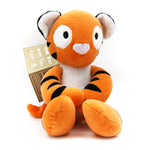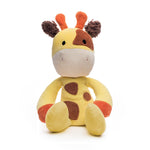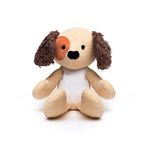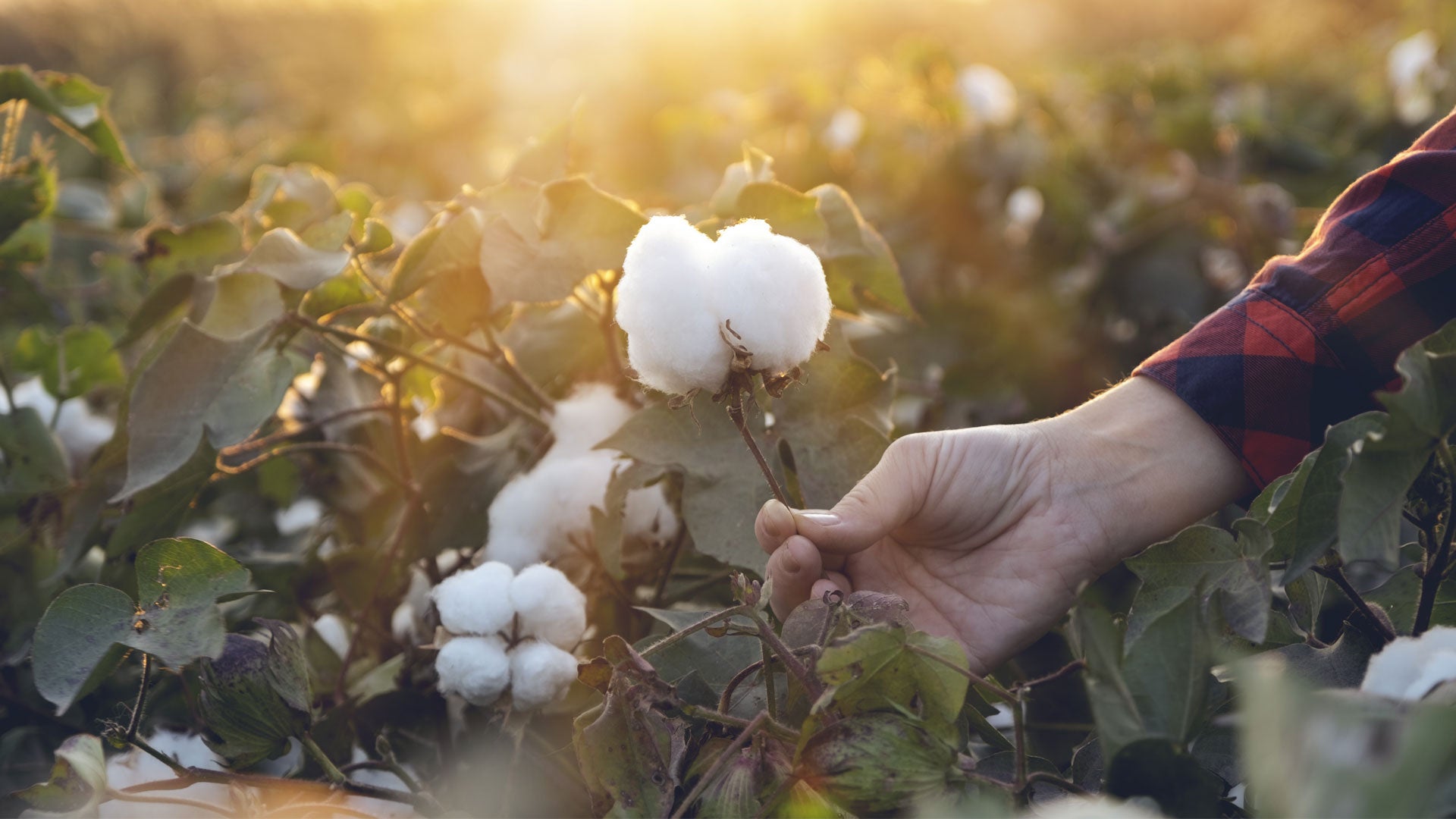At Bears for Humanity, we work hard to create well-made teddy bears and plush toys that come from ethical and organic origins. This means sourcing the best organic materials, paying employees at all levels fair living wages, and seeking out innovative ways to make a better bear. We don’t take any shortcuts. Our bears take a lot of work and a lot of love to create, and the result is something unique.
The Problem with Regular Plush Toys
Most stuffed animals are made with polyester, a synthetic petrochemical product commonly used in textiles. Polyester, while cheaper and easier to use compared with natural fiber fabrics, comes with a host of environmental and ethical issues.

Impact on the Earth
Making polyester consumes massive amounts of energy, produces large amounts of contamination, and results in a non-biodegradable product. In the past, teddy bears were made using wool or other natural fibers, which are always biodegradable. Polyester on the other hand is a form of plastic and will at some end up in a landfill or perhaps the ocean.
Fire Retardants and other Chemical Agents
Toys made with polyester and other synthetic materials often include toxic chemical agents. Chemicals like carcinogenic AZO dyes, heavy metals, and PVC are just a few of the harmful compounds commonly found in synthetic-made toys and plush animals. Since synthetic fibers are created using oil, they can ignite and burn easily. To reduce the risk of a child’s toy catching fire, polyester items are sprayed with chemical fire retardants that can easily enter a child’s system through their skin or mouth.
Issues with Workers Rights
Finally, polyester and synthetic textiles are created and processed in factories around the world that are notorious for extremely poor workers’ rights and dangerous working conditions. Issues like pay-per-piece rates (which encourages workers to work as much as possible instead of a set schedule), exposure to toxic chemicals in the workplace, and child labor run rampant in the textile industry.
Building a Better Bear, Step by Step
While polyester textiles can be created, colored, and cut in one factory, organic textiles require a much more complex system. Each step of processing our ethical supply chain is handled by a separate, small-scale entity.
Harvesting Certified Organic Cotton
Our bears are made with Global Organic Textile Standard (GOTS) cotton which is one of the most rigorous organic standards to achieve. We work with small-scale Co-ops that facilitate and fund the farmers’ ability to grow organic cotton using natural fertilizers. Farmers of these co-ops work 1-10 acre farms growing cotton for six months then grow fruits or vegetables the other six months of the year. This crop-rotation is important for soil regeneration and ensures that the nutrients stay balanced within the land.
Processing the Cotton
Next, the raw organic cotton goes through a series of steps; including combing, carding, knitting, and dying, all of which are done by hand. Our Sherpa fabric goes through a special combing process that ensures an especially soft, “curled” texture. We were actually the first company to ever create a sherpa texture from organic cotton.
Water-Soluble & Herbal Dyes

Once it has been processed, the fabric is either dyed with water-soluble or herbal dyes. Our sherpa fabric is dyed using organic, plant-based herbal dyes with anti-microbial elements. These dyes are created from completely natural elements including herbs, vegetables, fruits, and seeds. For example, our Cream Herbal Dye Sherpa Bears and Chocolate Herbal Dye Sherpa Bears are colored with dyes that come from pomegranate, nuts and seeds.
Stuffing and Sewing
Next, the fabric is hand-cut to avoid burn marks on the fabric. It is then hand-sewn into the cuddly animals you know and love. Our plush animals are stuffed using organic, non-GMO PLA fibers that come from corn. This makes for a completely biodegradable bear.
Individual Quality Inspection for Each Bear
After passing through production, each bear is inspected by hand to maintain the high standard of quality we are proud of. Since each stuffed animal is put together by hand, using natural cotton that stretches, (unlike synthetic polyester,) it takes time, patience, and attention to detail to ensure product consistency.
Safety Testing
Our plush animals must pass textile chemical composition tests that show no carcinogens or heavy metals are present in the final product. For this, each level of our supply chain must have been meticulous in keeping toxins away from the process. Because our bears are made with cotton and other natural fibers, we pass the flame resistance test with no use of fire retardants, which all other synthetic plush toys must use. The toy safety testing ensures that Bears for Humanity products are safe for children ages 0 and up.
Ethical and Organic Plushies to be Proud Of

We don’t cut any corners when it comes to creating our stuffed animals. Each step in our ethical supply chain has been carefully chosen considering quality as well as what our farmers and workers deserve. It’s not easy to build a better bear, but we are proud of the product we are putting out into the world.
Each time you purchase one of our bears, you can be sure it is 100% hypoallergenic and safe for even the most sensitive child. We are so sure of our process, we regularly donate bears to children in hospitals as a part of our Buy One Give One promise. Bears for Humanity is dedicated to bringing the world plushies and bears that are completely safe.




